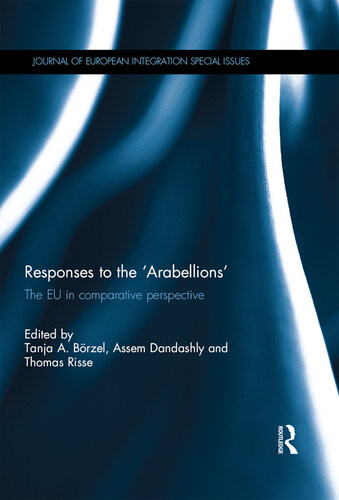

Most ebook files are in PDF format, so you can easily read them using various software such as Foxit Reader or directly on the Google Chrome browser.
Some ebook files are released by publishers in other formats such as .awz, .mobi, .epub, .fb2, etc. You may need to install specific software to read these formats on mobile/PC, such as Calibre.
Please read the tutorial at this link: https://ebookbell.com/faq
We offer FREE conversion to the popular formats you request; however, this may take some time. Therefore, right after payment, please email us, and we will try to provide the service as quickly as possible.
For some exceptional file formats or broken links (if any), please refrain from opening any disputes. Instead, email us first, and we will try to assist within a maximum of 6 hours.
EbookBell Team

4.3
48 reviewsThis book studies the reactions by external actors, including the European Union, to the events unfolding in the Arab world beginning in December 2010. In particular, contributors look at external actors' attempts to balance their desire for stability with their normative principles toward human rights and democracy. The book compares the action (and inaction) of the EU with other international and regional players, including the United States, Russia, Turkey and Israel, and assesses the response of these actors to the Arabellions’ events, analysing changes in their approaches to the Arab region.
The contributions to this book answer three questions: (1) How have external actors assessed the ‘Arabellions’ and what role did they see for themselves in this context? (2) Which goals and instruments did external actors pursue toward the MENA region? In particular, how did they deal with conflicting goals, such as support for human rights and democracy, on the one hand, and concerns about security and stability, on the other? (3) How can we explain the varying responses of external actors to the Arabellions?
This book was published as a special issue of the Journal of European Integration.